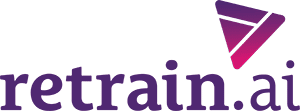One of the most significant shifts taking place within the realm of HR and talent management is the transition to a skills-based organization. Rather than focusing solely on job titles and traditional hierarchies, organizations are recognizing the importance of assessing and leveraging employees’ skills and capabilities to better drive success and foster innovation. But what exactly does it mean to transform into a skills-based organization? Why is it seemingly crucial for HR professionals to lead this paradigm shift?
Understanding the Skills-Based Organization
A skills-based organization places skill sets and capabilities at the core of its talent management strategy. Instead of relying on job titles and formal qualifications, enterprises instead shift their focus to identifying, developing, and utilizing the skills their employees possess so as to effectively match individuals to best-fit projects, initiatives, and roles.
What are the benefits of becoming an SBO?
- Agility and Adaptability. In today’s rapidly changing business environment, enterprises need to be nimble and adaptable. By focusing on skills, companies can quickly respond to market shifts and reconfigure their teams as required. Skills-based organizations have the advantage of assembling cross-functional teams with complementary skill sets, empowering them to tackle new challenges and seize opportunities efficiently.
- Talent Optimization. Traditional hiring practices often rely on predefined roles, limiting the potential of employees who may possess valuable skills outside their designated functions. A skills-based approach allows organizations to tap into the full potential of their workforce by unlocking hidden talents and engaging individuals to contribute in areas where they excel.
- Employee Engagement and Growth. Engaged employees are more likely to be motivated, productive, and loyal to their organizations. In a skills-based organization, workers have opportunities to develop and showcase their skills, leading to increased job satisfaction and a sense of fulfillment. By promoting skill development and growth, organizations can foster a culture of continuous learning, which modern professionals highly value.
- Diversity and Inclusion. Traditional job descriptions can use terminology that inadvertently creates barriers to entry. A skills-based approach promotes inclusivity by focusing on what an individual can do rather than where they come from or what their previous job title might have been. By removing biases associated with traditional hiring practices, enterprises can build diverse and dynamic teams.
In our next post, we’ll go over the key steps involved in transitioning to a Skills-Based Organization.
retrain.ai is a Talent Intelligence Platform designed to help enterprises hire, retain, and develop their workforce, intelligently. Leveraging Responsible AI and the industry’s largest skills taxonomy, enterprises unlock talent insights and optimize their workforce effectively to lower attrition, win the war for talent and the great resignation. retrain.ai fuels Talent Acquisition, Talent Management and Skills Architecture, all in one, data-driven solution. To see it in action, request a demo.










